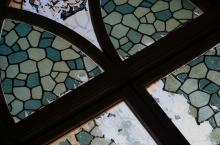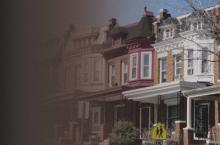
Sojourners Magazine: January 2011
In 1984, members of the Sojourners community founded a community center in southern Columbia Heights, an impoverished neighborhood in inner-city Washington, D.C. Over the years, community members worked with others in the neighborhood to secure tenants' rights, tutor children, distribute emergency food to hundreds of families, and serve as advocates and partners with their neighbors.
In the '80s, Columbia Heights had the dreadful distinction of hosting the highest concentration of murders in the city -- at a time when D.C. was the "murder capital" of the country. The neighborhood (where Sojourners magazine is still located) has changed much in the intervening years, but some things remain the same. Decades of gradual-then-rapid gentrification in the area haven't eliminated the violence that still roams the streets.
Long time community member, neighborhood resident, and Sojourners magazine associate editor Rose Marie Berger tells the tragic story of Donte Manning, a 9-year-old boy gunned down in Columbia Heights on Holy Thursday in 2005, in her new book Who Killed Donte Manning? Berger reads Donte's story as parable and metaphor for the state of our neighborhoods and our nation.
What does such apparently random violence tell us about the nature of God? The Bible -- particularly the Old Testament -- is filled with stories that make contemporary urban atrocities pale in comparison. And yet, as Brian McLaren explains, violence is only part of the biblical picture; the central motif is one of compassionate and unconditional love -- culminating in the ultimate rejection of violence: the cross. In Jesus' life, death, and resurrection, we find not only the antidote to the perpetrators of violence in our world, but the clearest and deepest exemplar of the true heart of God.

